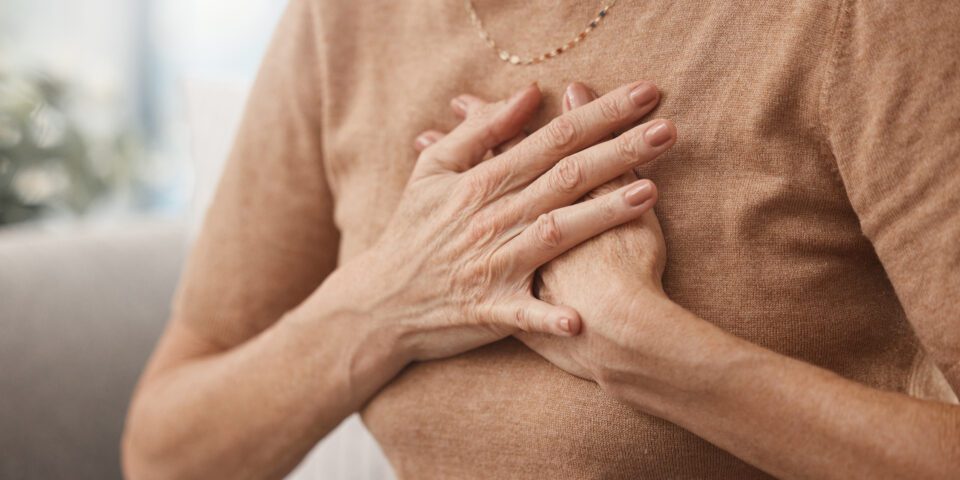Why am I having heart palpitations?
You’re sitting quietly and your heart flutters or begins racing. What’s going on? Should you be worried? Cardiologist Chris Armstrong, MD, explained what causes heart palpitations and when you should seek care.
What are heart palpitations?
“Heart palpitations are difficult to define,” Dr. Armstrong said. “I think the broadest definition is that palpitations are an abnormal sensation in your chest, related to your heart beating. Sometimes palpitations are described as rapid heartbeats, strong heartbeats or even skipped beats. Patients often have a difficult time describing what they feel. Sometimes patients experience a fluttering sensation, a flipflopping sensation or even like a pounding sensation in the neck – it’s all very subjective.”
What are some causes of heart palpitations and when might it be something more serious?
Palpitations can be caused by anxiety, caffeine, alcohol or certain medications. Structural or electrical abnormalities within the heart as well as abnormal heart rhythms (or arrhythmias) can cause palpitations too, like in the case of atrial fibrillation (or AFib). Typically, when they do occur, they are described as fast heartbeats that last from minutes to hours.
“If you feel chest or throat tightness, lightheadedness or even shortness of breath, these would all be signs that you should go to the nearest emergency department to get checked out,” Dr. Armstrong said.
Why is an arrhythmia dangerous?
Certain arrhythmias can be dangerous when they cause poor blood flow. Poor blood flow lowers the amount of oxygen going into all the important organs, like the brain and heart, which can be very harmful.
What are the types of arrhythmias?
There are several different arrhythmias, but the more common arrhythmias that can cause palpitations are atrial fibrillation, atrial flutter and super ventricular tachycardia (or SVT).
Can an arrhythmia go away on its own or should you see a doctor?
Certain arrhythmias, like SVT, can sometimes resolve with vagal maneuvers, such as pretending to blow into a bubble or having a bowel movement or even putting your hand in a bucket of ice water. But other arrhythmias don’t respond that way.
“Patients should seek medical help if they feel rapid heartbeats lasting for quite a long time or if they feel symptoms like lightheadedness, shortness of breath or chest pain,” Dr. Armstrong said.
How is an arrhythmia diagnosed?
Arrhythmias are usually diagnosed with EKGs or with monitors that are worn for a period of time. “There are a number of new gadgets like smart watches that actually can be helpful, too,” said Dr. Armstrong.
How are palpitations treated?
The treatment depends on what the palpitations are caused by. Sometimes it can be as simple as increasing the amount of fluid you drink. Other times it might require certain medications or even advanced procedures.
If you’re experiencing palpitations, see your doctor so you can figure out the right treatment for you and calm your fluttering heart.
Find a cardiologist you trust
We make it easier to get the care your heart needs, with cardiologists located near you.
Learn More

